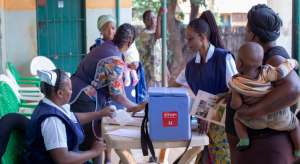
Article
June 9, 2021
Enhancing transparency of public health procurement in Zambia
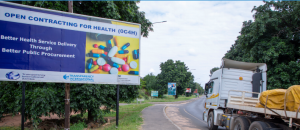
Open Contracting for Health (OC4H) is a FCDO funded project, which seeks to improve the transparency of public procurement in the health sector. The project works with chapters across Africa and South East Asia.
Since 2018, Transparency International Zambia (TIZ) have been working towards developing the capacity of government partners to implement open contracting, through the timely disclosure and usage of public procurement data on accessible platforms. Additionally the OC4H project has sought to increase the capacity of Civil Society Organisations (CSO) to provide independent oversight to the government operations, as well as facilitating the diversity of suppliers in the health sector.
CSO Oversight
Nobberty Banda is a community volunteer in Katete District who revealed that working with TIZ has raised awareness of issues they could not previously influence. He noted that a large amount of funds have been invested in infrastructure projects within the health sector. These projects needed to be closely monitored to ensure the community gets value for the investments that have been made.
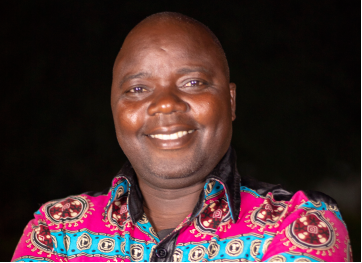
Nobberty Branda
As a result of the partnership between TIZ and Zambia Public Procurement Authority (ZPPA), local CSOs were given training on the Zambian procurement process including how the Electronic Government Procurement (E-GP) platform works. They were also given access to TI Global Health’s Open Contracting for Health hub, which gives additional learning resources and provided them with the necessary knowledge to effectively monitor public procurement within the country. Now Nobberty and other community members are able to analyse the E-GP system. “In the old days, people used to do this manually and the process could be manipulated. With the E-GP, tenders can be processed without passing through the hands of anyone,” he said, noting that this was deterrence for corruption.
TIZs training has given CSOs the opportunity to collaborate in providing checks and balances regarding issues of procurement and transactions between government and suppliers. The E-GP empowers CSO’s to participate in issues that they previously had no capacity in. They are now able to understand what happens at every stage in the procurement process and will know how to enforce the required ethical conduct of various actors in public procurement.
Juliet Pendwe is the Coordinator for Community Social Rights Advocates in Katete District that works on women and children’s rights, with a specific thematic focus on health. Community Social Rights Advocates participate in policy implementation on health issues and work with communities to increase awareness of health policy issues. Juliet was pleased that TIZ’s OC4H project emphasized the role of civil society in advocating for effective and transparent contracting practices.
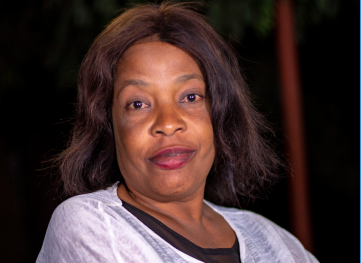
Juliet Pendwe
As the Zambian government focuses on strengthening health infrastructure especially in the construction of rural health centres, Ms. Pendwe, just like Nobetty Banda above, believes that the large amounts of funds being invested in the health sector require close monitoring. “Communities are expected to contribute 25% to the construction of such facilities, for example by contributing stones, and yet when the building contracts are awarded, they are not privy to the selection process,” she said. She noted that in the past, substandard work was done on such projects and questions arose about the contractors’ selection process. “Had the most professional company been selected? Who had issued the completion certificate?” are some of the questions that the community would be left to ponder.
Because of capacity building activities led by TIZ, civil society actors like Ms. Pendwe can now do budget tracking and monitoring of municipal contracts. CSOs are now able to come together as a group to hold the local government accountable throughout the procurement process and ensure that government investment in health infrastructure demonstrates value for money.
Increased supplier diversity
Nathan Kasanda Ngosa is a Sales Assistant for Harshad Bazaar in Choma district. He believes that he was fortunate to be invited by TIZ for training on the E-GP system because he is now able to bid as a supplier through the system.
Members of Small and Medium Enterprises (SMEs) such as Mr Kasanda have benefitted from the capacity building support from TIZ through obtaining a valuable understanding of the whole procurement process.
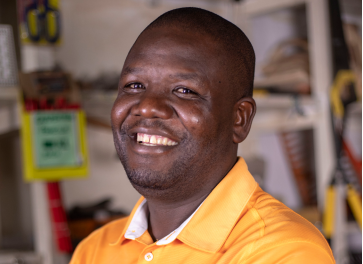
Nathan Kasanda Ngosa
Mr Kasanda described procurement before as being characterized by demands for kickbacks by some of the procurement officers. Therefore he was glad that the E-GP eliminates the opportunity for corruption and that his company is now able to supply goods using the E-GP system.
“Now there is nothing like face to face interaction with the procurement officers, we do everything online and can supply items through the system” he said. Previously, he had experienced challenges understanding the E-GP and had found it difficult to upload certificates for registration as a supplier on the ZPPA website.
“The OC4H training from TIZ helped us to understand how to go about it. Now they have made our work simple and very convenient,” he said with a clear sense of relief. His recommendation is that TIZ should give SMEs refresher courses to keep them informed of updates to the system.
Ackson Mwanamwale is the proprietor of Emmacks Enterprise in Livingstone district which supplies stationery, sports equipment and cleaning supplies to government and health institutions.
He appreciated the training from TIZ and ZPPA on registering as suppliers, using the E-GP system to access information on Government tenders in the health sector, the Open Contracting for Health Hub and Ethics in procurement.
This is because it made him realize the value of correct practices in procurement and highlighted where the challenges arise in the procurement of goods and services by government units.
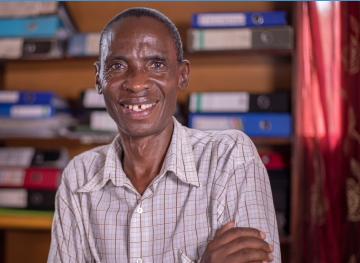
Ackson Mwanamwale
Ackson explained that SME’s complaints usually centred around the delays in procurement processes which ended up with bidders having to make numerous inquiries about the bid selection progress. Furthermore, information on adverts for contracts was not easy to access and often came too late for companies to apply. He lamented that such practices particularly affected small enterprises and led to the perception that it is only a favoured few big players that can win government contracts. He was glad, therefore, that the introduction of the E-GP means that procurements processes are now accessible to everyone.
Government Efficiency
Dr. Charles Fanaka, the District Health Director for Chipata District coordinates the provision of health services within the district and oversees 33 health facilities, including management of the procurement function.
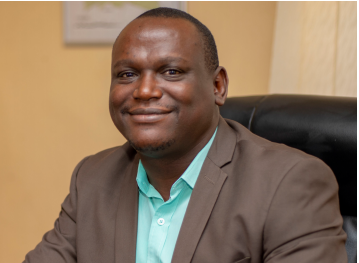
Dr. Charles Fanaka
“The project helps us to improve efficiency, accountability and transparency in the way we do procurement. Previously we were using the hard paper way and people were not aware of what we were doing. But now with the E-GP system all transactions and tenders are available on the ZPPA website. This gives citizens an opportunity to hold us accountable and ask questions in case any procurement is not done according to expectations,” he said. He added that by being transparent, they are compelled to show value for money as all transactions are open to close scrutiny.
With the whole district health team gaining a better understanding of corruption in procurement, and the Open Contracting for Health hub, alongside being trained on the E-GP system has made the evaluation of bids easier and more transparent. The system also makes it easier for suppliers to submit their bids in line with requirements due to information regarding these requirements being much more accessible. Furthermore, this system eliminates personal interface with suppliers which reduces the opportunities for corruption.

Siamate Hangombe
Siamate Hangombe, the Purchasing Assistant at Livingstone District Health Office described the situation before the E-GP system. Stakeholders did not have access to information about procurements in the district, and there was a perception that the system was rife with corruption. “Now everybody will be able to see it on the internet, both from the Ministry and other stakeholders,” she said.
Conclusion
TIZ’s work at the district level in Zambia on Open Contracting has ensured that more suppliers are able to competitively bid for health procurements, community members are able to provide oversight in how funds are spent and government officials are able to conduct procurement in a transparent and open way.
Mulenga Kantanga, the Procurement Specialist at Chipata District Health Office summarises the benefit of the project as increasing the ability of the poor to access health services. She states “by practicing transparency, it reduces the corrupt practices that deny communities access to these services,” she said.
